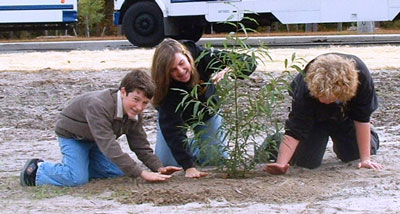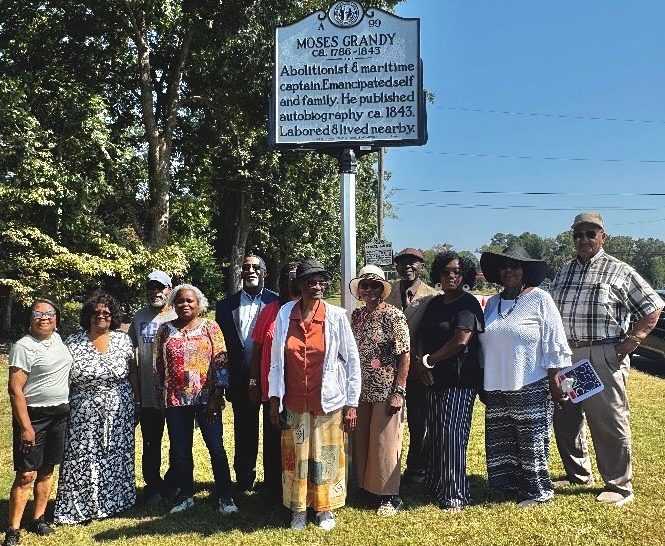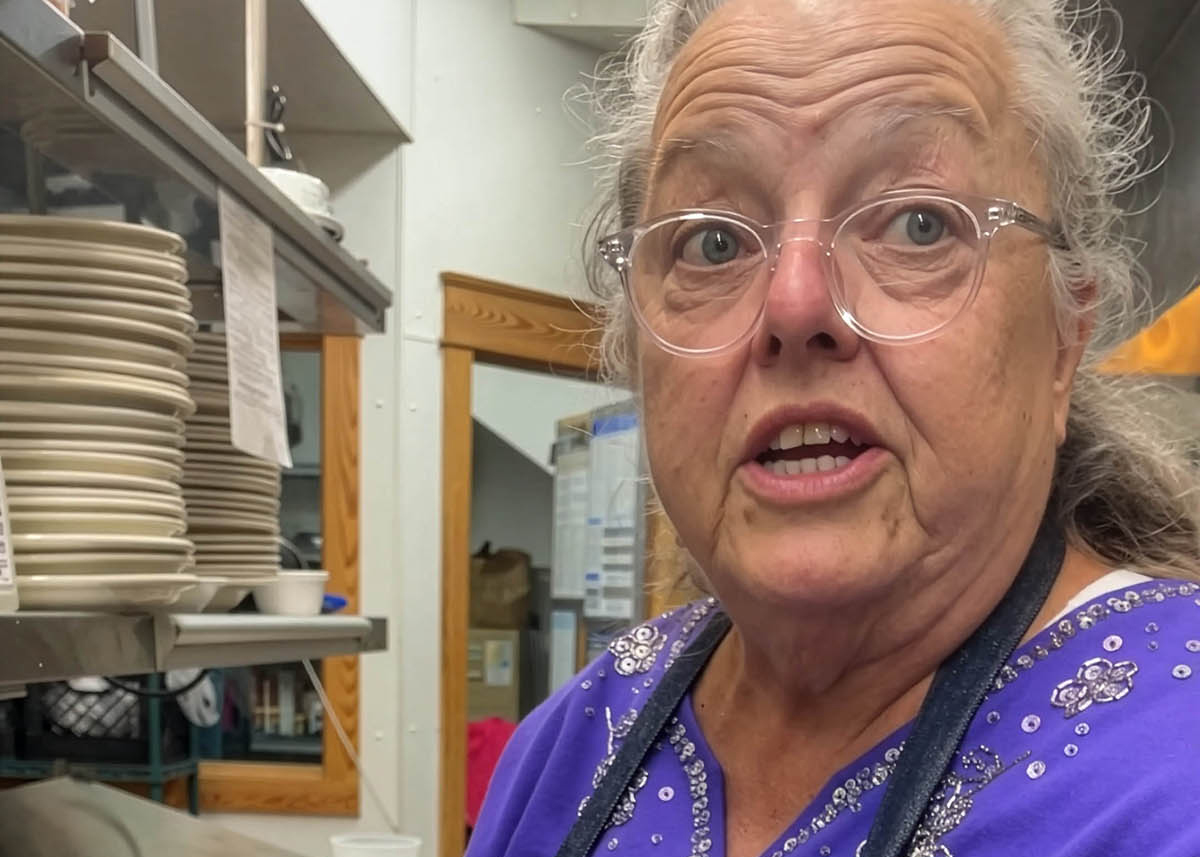MANTEO — Although they may not see the immediate value of native plants, stormwater controls or plant surveys, most middle school students sure do enjoy being outside and getting dirty.
Mary Ann Hodges works hard to see that they do.
Supporter Spotlight
 Mary Ann Hodges |
The Manteo Middle School teacher and N.C. Coastal Federation volunteer has worked tirelessly to make sure her students not only enjoy working in the school’s rain garden, but learn from it. By strengthening the bond between student and the natural environment, Hodges has shown that the kids can learn from doing something as simple as gardening.
Beginning with the construction of the rain garden in 2006, Hodges, who has been a science educator for more than 25 years, has remained a steadfast advocate for the garden and its place in seventh- and eighth-grade curricula.
In their simplest forms, rain gardens are plantings of robust native species, which can withstand most any weather condition, in a depression in the ground. Runoff that would otherwise eventually flow into nearby surface waters, collects in the depressions and is taken up by the plants. The stormwater then filters through the ground, which removes pollutants and recharges the water table. Hodges has been able to use this design to teach students about water quality, native plants and the natural history of our region.
While a long line of awards trails her name, Hodges is no stranger to excellence. A resident of Dare County for 18 years, she holds an undergraduate degree from Towson State University, a master’s degree in school administration from East Carolina University and was a member of the team that received a federation Pelican Award for Environmental Education in 2006.
It was then that Hodges began working with the N.C. Aquarium in Manteo and the federation to create the middle school’s rain garden.
Supporter Spotlight
“The rain garden has enriched the entire school,” she said, “and the students were able to see the evolution of the project – from planning and planting, to maintenance.”
While the Albemarle-Pamlico National Estuary Program provided the initial money for the garden, Hodges continues to write and receive grants for maintenance costs. This funding has ensured that the garden will continue to be a part of the student’s science curriculum for the year.
“As an educator, it’s hard to be up to date on everything going on in the area, and the federation has been very willing to involve our school in their work,” said Hodges.
 Manteo Middle School students plant a tree in the school’s rain garden. |
A self-proclaimed “willing guinea pig,” Hodges has made herself available and involved throughout all aspects of the federation’s rain garden program to make sure the lessons are incorporated into the students’ official curriculum.
Only, Hodges wasn’t willing to stop there.
“We have actually been able to add more learning tools to the rain garden design,” she said. “I am now using the gardens to show students the concept of volunteer plant growth, population statistics, mapping and other vegetation community dynamics.”
In addition to rain garden maintenance and education, Hodges has been able to have her students participate in water quality labs with the federation, where students test water collected from different areas to better understand water properties and what is required for a healthy system.
“These water quality testing days have provided students with opportunities I don’t have access to here on campus,” said Hodges, “And the hands on work is perfect.”
With volunteers and partners like Hodges, the federation’s rain garden program can continue to grow throughout the region, while inspiring our younger generations to improve and maintain our environmental quality.
While some may not see the benefit of hands-on education immediately, Hodges’ experience has shown that students can use the work to understand and appreciate their natural environment.
“With the federation working at a local level, the students are more aware of local issues, and are able to be better stewards,” said Hodges, “It may not click right away, but it will eventually.”







